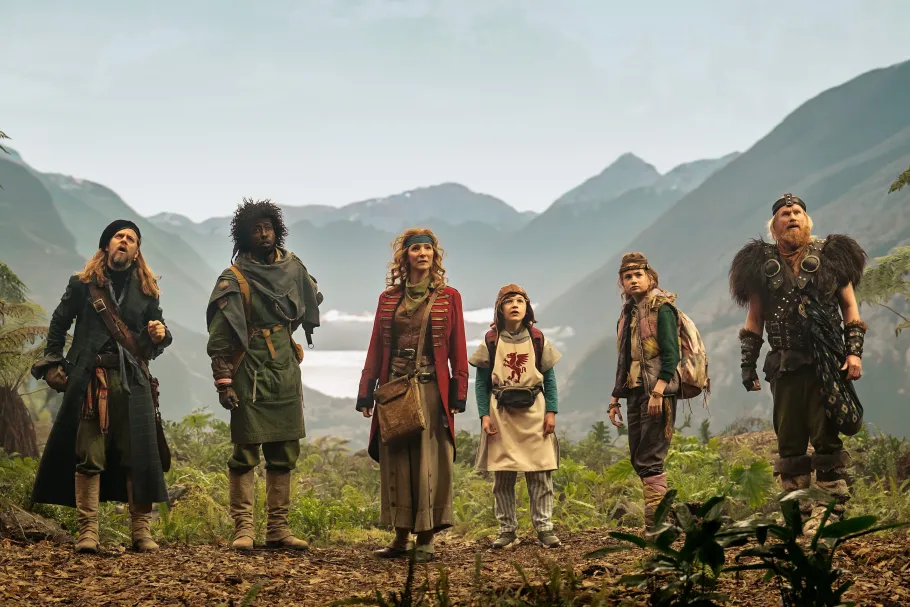
Infinity According to Florian review – mission to save Ukraine’s extraordinary modernist masterpiece
04/30/2024
Riddle of Fire review – quest for a blueberry pie aims to be ye olde work of whimsy
04/30/2024Director Leiv Igor Devold makes an unexpected link-up between Norway, the country where he grew up, and Poland, where he attended film school, in this idealistic but sometimes heavy-handed second feature. He also finds invigorating cross-currents in contrasting the collectivist struggles of immigrant Polish fish-processing workers with another oppressed minority: the stuttering romance, in the face of homophobia, between young wage slave Robert (Hubert Miłkowski) and his supervisor Ivar (Karl Bekele Steinland).
Robert finds himself gutting salmon in a factory on a Norwegian island in order to send money back home. But it is Ivar – the black adopted son of the factory owner Bjorn (Øyvind Brandtzæg) – who gets under his skin. A wannabe actor slumming it courtesy of dad, he’s an unbridled karaoke diva and early-morning buster of moves in the factory car park, even with Robert’s dorm-mate Marek (Jakub Sierenberg) heckling him. Robert is fascinated, but it’s not the fear of his compatriots that stops him acting; it’s the self-hating homophobic imp on his back that has him clamming up every time he’s confronted with Ivar.
Tightening economic straits eventually come to his rescue, when Ivar lands him a DJing gig he needs to top up his income, and the pair start to socialise outside the factory. Meanwhile, the Poles unionise in order to bolster their chances against their paymasters (whose capitalist whims are meted out by a sinister faux-chummy Polish liaison officer). There are intriguing parallels to be made here about these two underclasses, about victimisation and agency. It’s a pity then that Norwegian Dream’s gay elements – a generic drag-swathed liberation – is too on the nose, didactic and at points melodramatic to sew up this seam with much finesse.
Devold does find a way of dovetailing the two strands, when Robert’s flaky mother (Edyta Torhan) turns up and forces him to break a strike that even Ivar is supporting. But this bit of plot-finagling lacks deeper resonance and, despite the nicely detailed early characterisation, leaves much of the ensemble hanging without purpose outside the gates, particularly Ivar. Steinland has a haughty presence in his role, but doesn’t get to explore his dark side; unlike Miłkowski, who looks like a young Christian Slater, and impressively graduates from pent-up impotence to anguished self-recrimination.




